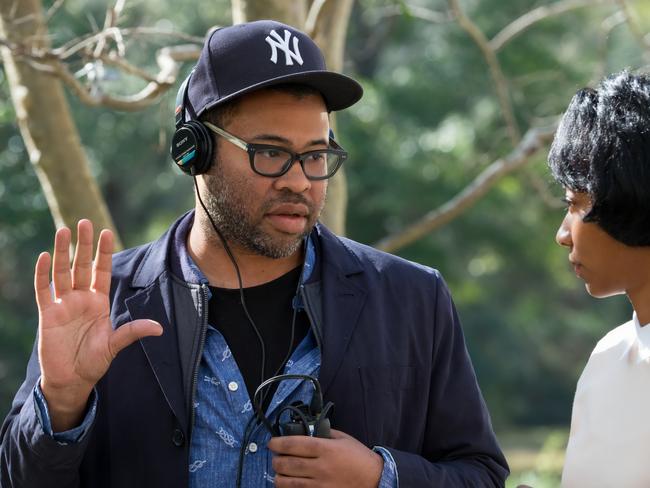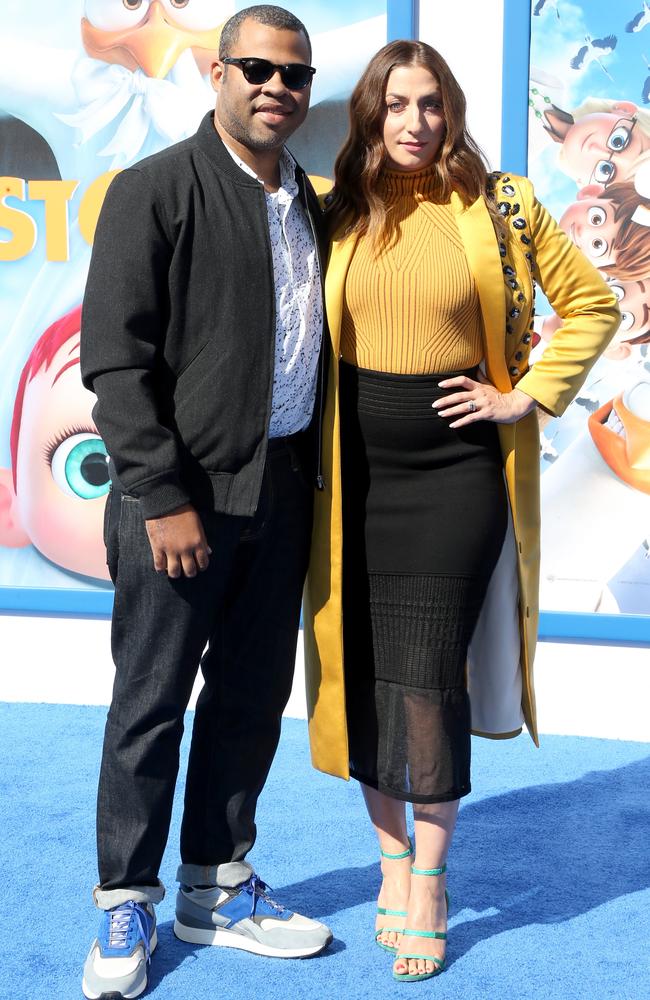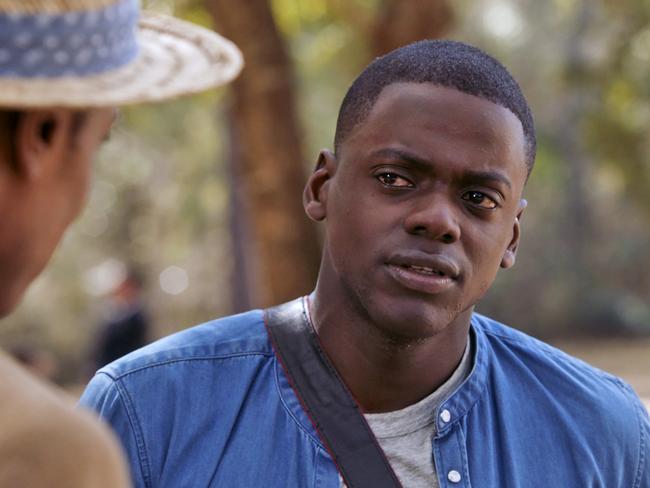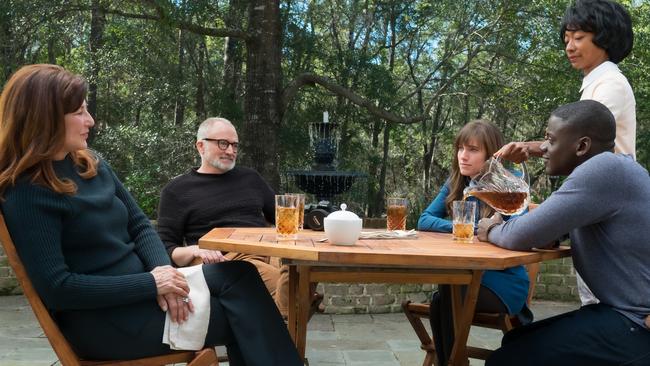Director Jordan Peele on why the horror of racism works in his hit film Get Out
DIRECTOR Jordan Peele uses horror in a satirical look at modern-day racism in America in his smash hit movie Get Out.
New Movies
Don't miss out on the headlines from New Movies. Followed categories will be added to My News.
GET Out is a smash hit in the US.
Made for $6 million, it has grossed $224 million to be the fourth highest-grossing film of 2017 to date.
Yet more than money, this clever horror movie — about a young black man meeting his white girlfriend’s parents for the first time — has become a cultural phenomenon.
Its concepts — such as the “sunken place” or a teacup and spoon used to trigger hypnosis — have inspired endless internet memes and infiltrated American lingo.
It’s something writer and director, Jordan Peele, a lifelong horror fan, had hoped for … “But I couldn’t have expected how massively it’s been accepted into the lexicon,” he says.

The acceptance of Get Out also seals Peele’s acceptance into a very different line of work than that in which he made his name: as a sketch comedian in the much-loved series Key & Peele.
Peele and Keegan-Michael Key similarly tapped the Zeitgeist, especially with their sketches about President Obama (Peele) and his “anger translator” Luther (Key).
The real Obama was a huge fan.
“This dream of being a horror director started when I was 13-14, so by the time the comedy took off, I did feel like, hey, I love this direction … but it doesn’t quite compute that you would be a sketch comedian then somehow jump over and be a horror director,” Peele says.
He began writing Get Out almost 10 years ago. “As a hobby more than anything,” he says. “It was about becoming a better writer and giving myself the gift of what could hypothetically be my favourite movie that doesn’t exist.”
Now, the 38-year-old says: “I’m living my own personal dream come true.”
On top of that, he’s expecting his first child with wife Chelsea Peretti, the very funny star of Brooklyn Nine-Nine.
“2017,” he says with some understatement, “is a good year for old JP.”

Get Out has been called Guess Who’s Coming to Dinner? (1967) meets The Stepford Wives (1975)— remixed with an unhealthy dose of horror and satire.
It centres on Chris (Daniel Kaluuya), who’s wary of meeting girlfriend Rose’s (Girls’ Allison Williams) parents; she’s yet to tell them he’s black.
At first relieved to find Rose’s folks to be almost overbearingly liberal, as the weekend wears on, Chris notices more and more unsettling abnormalities.
Via phone, his friend Rod (LilRel Howery) interprets these as red alerts to get out of there, fast. But Chris isn’t sure if there is actually racism in the air or if he’s just being paranoid.

It’s that uncertainty Peele felt lent itself perfectly to horror.
“A big part of the African-American or the minority or even the female experience is being told that your concerns, the things that you’re observing about the way you’re being treated, are not what you are experiencing. Being part of a minority is a horrific state and a perfect state for the protagonist of a horror film.”
Get Out makes no bones about its central concern being the horror of racism.
Peele made it for his fellow African-American filmgoers, an audience renowned for shouting at the screen from their cinema seats and an audience (as #Oscarssowhite demonstrated) too often under-represented on screen.
“Part of the reason we are demonstrative and a loyal horror movie fanbase is because people who deal with horror on an everyday basis need to deal with it more than people who deal with horror less,” Peele explains. “But also, we’re sitting watching these movies where the black guy’s sure to die and the protagonist is not us; along with that lack of representation comes this marginalisation that just begs us to be involved.
“Because we’re not invited into these movies, we take greater pleasure by involving ourselves in them.”
Best mate Rod is the on-screen surrogate for that fanbase. His distrust of white culture provides much comedy, but is ultimately completely, terribly justified.
“The African-American horror audience, we’re frustrated when people in movies don’t realise how badly something could go — like walking into an isolated environment willy nilly.
“When Rel and I were talking about the character, we’d constantly be: this guy’s gotta be saying exactly what the audience wishes somebody would say right now. He’s the one that initially says, ‘Don’t go to a white girl’s parent’s house’,” Peele points out with a laugh.
“The audience gets a real kick out of having somebody say that.”

However culturally specific its genesis, Peele is certain Get Out will travel.
“The idea of race, the idea of tribalism and the idea of the ‘other’ is a universally human thing. The fears of meeting your in-laws for the first time are universal as well. So this movie is more about human nature than it is about America.”
(For the record, Peele had started the script before he met his in-laws, the Perettis: “They take comfort in that,” he laughs. “It would be much more awkward if after meeting them for the first time I went home and wrote this.”)
Fans of Key & Peele — and the duo’s gangsta kitty movie comedy Keanu — may be disappointed to hear it, but the success of Get Out has all but guaranteed Peele will stay behind the camera from now on.
“I’m so much more fulfilled by this than I am by acting,” he says.
SEE: GET OUT OPENS TODAY
Originally published as Director Jordan Peele on why the horror of racism works in his hit film Get Out



